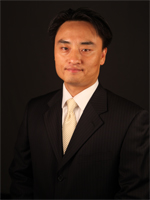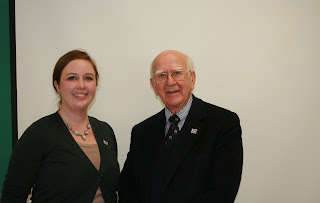The BSE was designed by Jason O’Connor, assistant dean of
academic programs and director of Student Academic Services, alongside Alicia
Green and Shu Tosaka, academic advisors at the School of Business. The program
focuses on incoming, high potential freshmen interested in pursuing a business
major.
“Students are often looking to jumpstart their majors within
the first year,” Green said. “Many other colleges offer that possibility and we
see this addition to be an improvement for the students wanting to pursue a
business degree, as well as the school itself.”
“It shows them what it means to be a Jayhawk, and more
specifically what it means to be a business school student,” Tosaka said. “It
ties students together and they are bound with tradition.”
To guide the freshmen during their first year, each student is
assigned a peer mentor. Throughout the semester, the students are required to
meet with their mentor at least two times. In addition, each student is
required to attend four School of Business events each semester.
“Quite honestly, I would have benefited tremendously from
exposure to the School of Business during my freshman and sophomore years,”
said Joe Viviano, senior at the School of Business and BSE peer mentor. “Had I participated in more events during my
first two years, I believe I would have emerged from my introverted shell
earlier.”
Viviano and the other 10 mentors want to provide as much insight,
counseling and advice as possible.
“Our hope is that the BSE students will parlay our mentoring
and advice into personal and professional success,” Viviano said.
Green has received feedback from the mentors, who wish they
would have been offered the same resources their first two years of college. This
program allows students to network early and to explore all the possibilities
in business. Green and Tosaka hope that this will benefit the students to make
more specific schooling decisions for long-term success.
“Our goal with this program is to help the students become
well-rounded individuals, personally and professionally,” Tosaka said.


